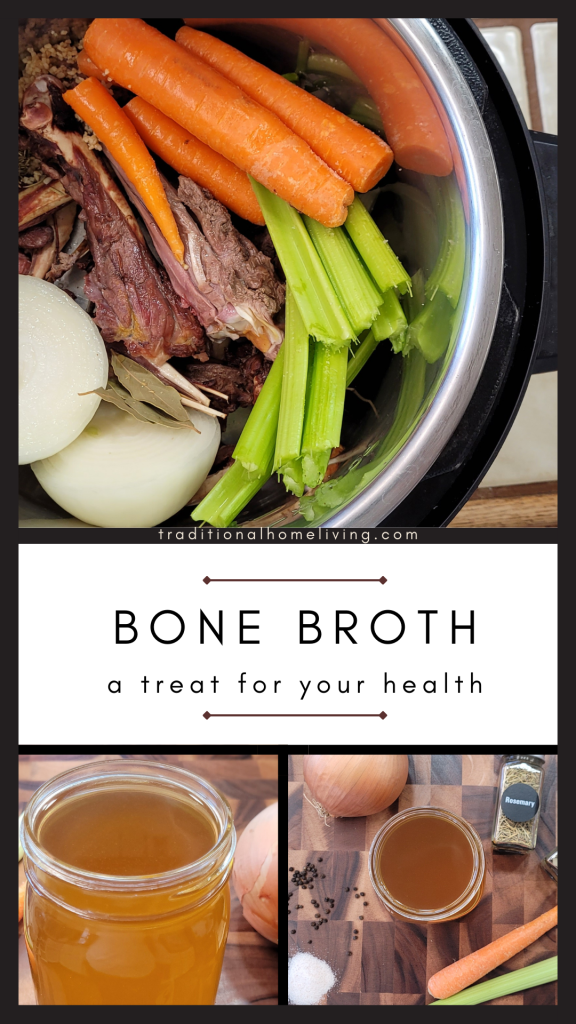Bone Broth for Babies: When and How to Introduce It
Wiki Article
Exploring Everything About Bone Broth: A Comprehensive Guide to Its Nutritional Benefits
Bone broth has gained considerable attention for its impressive nutritional account and potential health and wellness advantages. This nutrient-dense liquid, abundant in collagen and crucial minerals, supplies a range of advantages for overall wellness. Recognizing its elements and exactly how to integrate it into daily meals can enhance one's diet plan. As more people seek natural ways to enhance their wellness, the concern continues to be: what makes bone broth a staple worth considering?The Nutritional Profile of Bone Broth

Health Benefits Backed by Scientific Research
Research suggests that bone broth offers several health advantages supported by clinical proof. One noteworthy advantage is its high collagen material, which may boost joint wellness by lowering discomfort and swelling related to conditions like joint inflammation. Furthermore, the amino acids located in bone broth, such as glycine and proline, are known to sustain gut health by advertising the stability of the digestive tract cellular lining, potentially reducing concerns like leaking gut disorder.Researches recommend that the minerals removed throughout the cooking procedure, consisting of calcium, magnesium, and phosphorus, contribute to bone strength and density. Bone broth might likewise contribute in improving the body immune system, thanks to its abundant nutrient account. On top of that, its hydrating residential or commercial properties can help in total health. Collectively, these findings show that including bone broth right into one's diet regimen may generate considerable health advantages, making it a valuable enhancement to a balanced dietary routine.
How to Make Bone Broth at Home
Making bone broth at home is a simple process that needs just a couple of crucial active ingredients and some patience. To start, one requires bones, ideally from grass-fed or organic sources, along with water, vinegar, and optional vegetables and herbs for added flavor. The bones need to be roasted first to improve the broth's splendor.In a huge pot or slow cooker, the roasted bones are incorporated with water and a dash of vinegar, which assists extract minerals. The mix is brought to a boil and afterwards simmered for an extended period, normally 12 to 2 days, to enable the nutrients to permeate into the liquid.
Throughout this moment, any type of residue that increases to the surface area can be skimmed off. When finished, the broth is strained to eliminate solids, and it can be saved in containers or containers. Bone broth can be refrigerated or iced up for future usage.
Creative Ways to Make Use Of Bone Broth in Your Cooking

Choosing the Right Active Ingredients for Bone Broth
When choosing active ingredients for bone broth, it is essential to focus on quality to guarantee maximum nutritional benefits and taste. High-quality bones, ideally from grass-fed or pasture-raised animals, offer richer nutrients such as collagen, jelly, and minerals. Marrow bones, knuckle bones, and joints are particularly beneficial for a robust broth.Along with bones, integrating a variety of veggies boosts the taste and dietary account. Carrots, onions, and celery are timeless choices, however garlic, leeks, and natural herbs can include depth.
Making use of filtered water is also essential, as it affects the total preference and pureness of the broth - bone bone broth for toddlers broth for infants. For added health and wellness benefits, a splash of apple cider vinegar can assist extract minerals from the bones
Eventually, selecting fresh, organic components will certainly not just boost the broth's taste however also ensure it is packed with essential nutrients, making it a wholesome addition to any type of diet.
Regularly Asked Questions
Can Bone Broth Be Consumed on a Certain Diet Regimen, Like Keto or Paleo?
Bone broth can be eaten on different diet regimens, consisting of keto and paleo. Its low carbohydrate content and nutrient density line up well with these dietary preferences, making it a suitable selection for people following such lifestyles.The Length Of Time Can Bone Broth Be Kept in the Fridge or Freezer?
Bone broth can be stored in the fridge for around 4 to 5 days. If frozen, it lasts significantly much longer, commonly up to 6 months, keeping its dietary worth and flavor when properly secured.Is There a Vegetarian Alternative to Traditional Bone Broth?
The inquiry of vegan alternatives to conventional bone broth develops regularly. Alternatives consist of veggie stocks made from simmering assorted vegetables, herbs, and spices, providing a savory base while keeping a comparable culinary function without pet products.
Can Bone Broth Assist With Joint Pain or Arthritis?
Research suggests that bone broth may aid in minimizing joint discomfort and joint inflammation signs because of its collagen and gelatin material, which can support joint health and wellness by minimizing inflammation and advertising cartilage repair in some individuals. (bone broth for babies)Are There Any Kind Of Side Results of Consuming Bone Broth Regularly?
The question of prospective adverse effects from regular bone broth consumption occurs. Some individuals may experience digestion discomfort or sensitive responses. Furthermore, high salt web content in certain brews might bring about elevated blood pressure worries for some.Report this wiki page